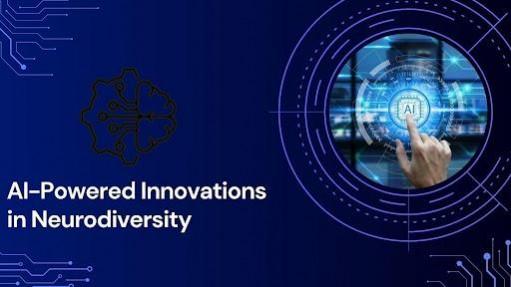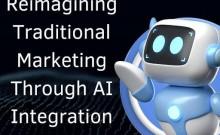
Artificial Intelligence (AI) has become a transformative tool in addressing the challenges faced by individuals with neurodevelopmental disorders. The research, led by Sachin Mishra, explores AI's role in improving early diagnosis, treatment, and support mechanisms for conditions like Autism Spectrum Disorder (ASD), dyslexia, and ADHD. By leveraging AI technologies such as machine learning algorithms and natural language processing, breakthroughs are being made in creating personalized, effective solutions. These innovations are reshaping how individuals with neurodiversity are diagnosed and supported, offering new hope for earlier interventions and better outcomes.
Advancing Early Diagnosis for Autism Spectrum Disorder
Early diagnosis of Autism Spectrum Disorder (ASD) has typically been delayed until after key developmental years. However, AI-driven models, particularly convolutional neural networks (CNNs) trained on fMRI data, have significantly improved early detection, identifying ASD biomarkers in infants as young as six months with 92% accuracy. By analyzing neural activation patterns related to social cognition and language processing, these tools detect subtle differences undetectable by traditional methods. Incorporating EEG and eye-tracking data further increases accuracy to 95%, enabling diagnoses as early as four months for timely interventions.
AI-Assisted Tools for Dyslexia Support
Dyslexia, affecting about 10% of the global population, poses challenges in reading, writing, and spelling. AI-powered tools are transforming support for individuals with dyslexia. One AI tool, using natural language processing, provides real-time text-to-speech and writing assistance, improving reading comprehension by 27% and writing scores by 31%. Additionally, AI-driven augmented reality (AR) systems enhance reading experiences by overlaying simplified text and pronunciation guides onto physical books in real-time. These innovations are significantly improving reading speed and comprehension, creating more inclusive educational environments where individuals with dyslexia can succeed.
Enhancing Social Skills for Individuals with ASD
Social interaction is challenging for individuals with Autism Spectrum Disorder (ASD) due to difficulties with communication and social cues. AI-powered chatbots are now helping improve social skills by simulating real-world interactions and offering feedback. A study found that adolescents with ASD who used an AI chatbot for 30 minutes daily over 12 weeks saw a 40% improvement in communication skills. Additionally, AI-driven virtual reality (VR) environments provide immersive, personalized training through adaptive, realistic characters to further enhance social development.
Managing ADHD with AI-Powered Tools
Managing tasks and maintaining focus is challenging for individuals with ADHD. AI-driven tools are improving task completion rates by 35% and reducing stress by 28% by analyzing user behavior, prioritizing tasks, and providing personalized reminders. AI-powered wearable devices also monitor ADHD symptoms in real-time, offering interventions like guided breathing exercises. Over time, these tools have been shown to enhance academic and professional performance while boosting self-efficacy in managing tasks and improving organizational skills.
Novel AI-Based Diagnostic Approaches
AI is transforming the diagnosis of neurodevelopmental disorders, with studies showing that AI systems can analyze eye-tracking data to detect ADHD with 88% accuracy by identifying subtle eye movement patterns. Further advancements, including voice analysis and motor skill assessments, have increased diagnostic accuracy to 92% for various neurodevelopmental conditions. These AI tools enable earlier detection, paving the way for timely interventions that can improve outcomes and positively influence the developmental trajectory for affected individuals.
In conclusion, the research led by Sachin Mishra demonstrates the profound impact AI is having on the diagnosis and treatment of neurodevelopmental disorders. From early detection of ASD to innovative tools for dyslexia support, social skills development, and ADHD management, AI-driven solutions are providing personalized, effective interventions. These advancements offer earlier diagnoses and improved outcomes for individuals with neurodiverse conditions, highlighting AI's potential to reshape neurodevelopmental care. As technology continues to evolve, it will play an increasingly vital role in improving the lives of those affected by neurodiversity.









